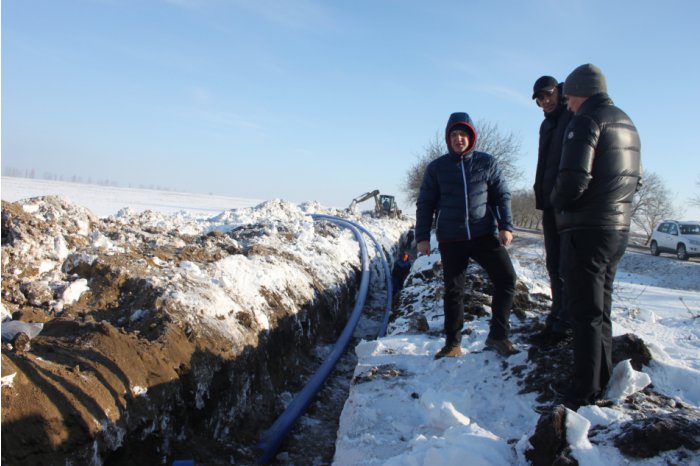Three villages in southern district of Moldova to get provided with quality water
13:35 | 17.01.2019 Category: Regional
Chisinau, 17 January /MOLDPRES/ – On 16 January, in Cahul district, there began construction works on the water supply networks of villages Lebedenco, Hutulu and Ursoaia. The signing of the necessary documents and the examination of the details of the project took place at a meeting with the participation of the regional and local authorities, the consultant of the International Cooperation Agency of Germany (GIZ), the general contractor and the administration of Apa Canal Cahul (ACC).
The Cahul investment action is being implemented by the South Regional Development Agency (ADR) jointly with GIZ within project: The construction of the Cahul – Lebedenco – Pelinei – Gavnoasa – Vulcanesti – Alexandru Ioan Cuza magistrale aqueduct and the internal networks in Lebedenco, Pelinei, Gavnoasa. Stage I, Phase I and Phase II.
The financial support for realisation of investment action, amounting to about MDL 47 million, is granted by the Government of Switzerland throughout GIZ. Also, the beneficiary communities co – finance the works on the construction of the internal aqueduct networks with a contribution of about MDL 1.7 million.
Under the Cahul project, there will be built 11 km of magistrate aqueduct, two overground water reservoirs with a capacity of 800 m3 each, and 25.2 km of inland water supply networks. Also, there will be installed 884 visiting hostels to ensure connection to the aqueduct of all households in the mentioned villages.
"This programme will contribute to the development of the water supply and sanitation sector and the implementation of the Social and Economic Development Strategy of Cahul district, the water supply and sewerage component," explained sources from ADR Sud.
The activity is carried out within the framework of project: Modernisation of Local Public Services in Moldova, implemented by the German International Cooperation Agency in partnership with the Ministry of Agriculture, Regional Development and Environment (MADRM) and financially supported by the European Union, the German Ministry for Economic Cooperation and Development, Sweden, Romania and the Swiss Agency for Development and Cooperation.

